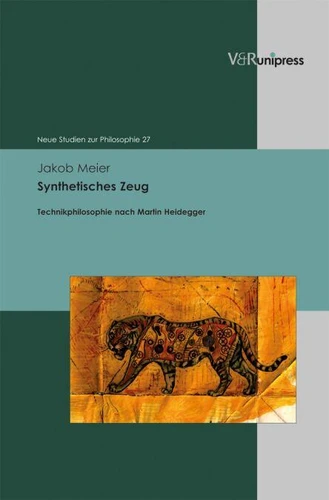Synthetisches Zeug. Technikphilosophie nach Martin Heidegger
Par : , , ,Formats :
Disponible dans votre compte client Decitre ou Furet du Nord dès validation de votre commande. Le format PDF est :
- Compatible avec une lecture sur My Vivlio (smartphone, tablette, ordinateur)
- Compatible avec une lecture sur liseuses Vivlio
- Pour les liseuses autres que Vivlio, vous devez utiliser le logiciel Adobe Digital Edition. Non compatible avec la lecture sur les liseuses Kindle, Remarkable et Sony
 , qui est-ce ?
, qui est-ce ?Notre partenaire de plateforme de lecture numérique où vous retrouverez l'ensemble de vos ebooks gratuitement
Pour en savoir plus sur nos ebooks, consultez notre aide en ligne ici
- Nombre de pages519
- FormatPDF
- ISBN978-3-86234-959-3
- EAN9783862349593
- Date de parution15/08/2012
- Protection num.pas de protection
- Taille3 Mo
- Infos supplémentairespdf
- ÉditeurV&R Unipress
Résumé
This book concerns a metaphysical definition of artifacts, taken as a key term of the philosophy of technology. Due to the fact that classical determinations are not only insufficient explicating the term but also inapplicable to real artifacts, the work tries to develop a concept of "artifacts" using the thought of truth given by Martin Heidegger. In so far a hermeneutic interpretation of his oeuvre shows us, that truth actually is an object-generating happening.
Thats why an analysis of forms of judgments allows the description of factic things. Assuming that there are theoretical judgments concerning technique - wherefore technique is an historically contingent kind of metaphysics - artifacts are given as geometrical universals, meaning terms, without being able to subsume thought-independend individuals, unless artifacts exceptionally are known as subjects of practical philosophy.
Thats why an analysis of forms of judgments allows the description of factic things. Assuming that there are theoretical judgments concerning technique - wherefore technique is an historically contingent kind of metaphysics - artifacts are given as geometrical universals, meaning terms, without being able to subsume thought-independend individuals, unless artifacts exceptionally are known as subjects of practical philosophy.
This book concerns a metaphysical definition of artifacts, taken as a key term of the philosophy of technology. Due to the fact that classical determinations are not only insufficient explicating the term but also inapplicable to real artifacts, the work tries to develop a concept of "artifacts" using the thought of truth given by Martin Heidegger. In so far a hermeneutic interpretation of his oeuvre shows us, that truth actually is an object-generating happening.
Thats why an analysis of forms of judgments allows the description of factic things. Assuming that there are theoretical judgments concerning technique - wherefore technique is an historically contingent kind of metaphysics - artifacts are given as geometrical universals, meaning terms, without being able to subsume thought-independend individuals, unless artifacts exceptionally are known as subjects of practical philosophy.
Thats why an analysis of forms of judgments allows the description of factic things. Assuming that there are theoretical judgments concerning technique - wherefore technique is an historically contingent kind of metaphysics - artifacts are given as geometrical universals, meaning terms, without being able to subsume thought-independend individuals, unless artifacts exceptionally are known as subjects of practical philosophy.



